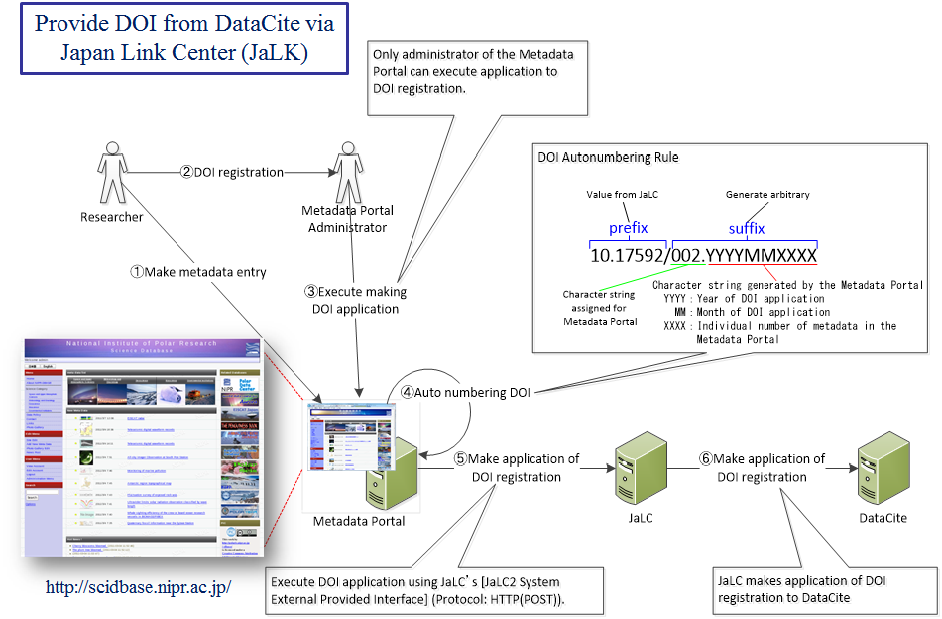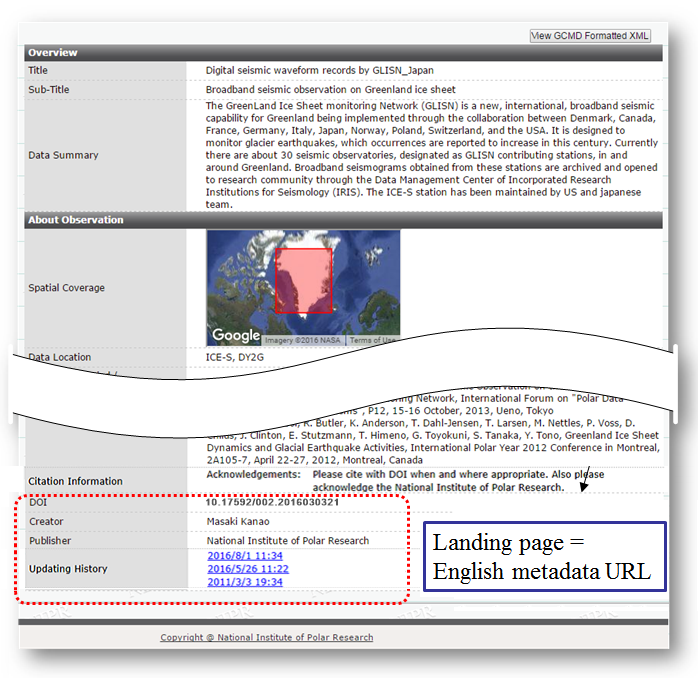| DATA CITATION; attribution of DOI |
For the compiled metadata of all polar sciences by PDC/NIPR, a software system that can automatically be attributing the Digital Object Identifier (DOI) are recently equipped inside the portal server. The DOIs shall be requested to the "DataCite (https://www.datacite.org/)" through the gateway interface provided by the "Japan Link Center (JaLC; https://japanlinkcenter.org/)". The JaLC is the only Japanese organization authorized as one of a Registration Agency (RA) which can provide the DOIs.
Under the adequate evaluation procedures, the metadata and their associated data having enough quality of publication procedure could be attributed their DOIs with a "prefix" of "10.17592". Under our DOI auto-numbering rule, the "suffix" part of the DOIs (i.e., the character string ordering) is generated arbitrary in a manner defined by the metadata portal of PDC/NIPR. The landing page of the data attributed by its DOI is initially oriented at the "English page" of the corresponding metadata in the PDC/NIPR portal server (http://scidbase.nipr.ac.jp/).
After receiving any offers from data providers/managers, quality of the individual data are strictly evaluated by the data management committee inside NIPR, followed by attributing their DOIs for those with sufficient revel of quality for opening/publishing the data into a public domain. There are several evaluation terms before assignment of the DOIs; regarding data quality, publishing methodology, long-term maintenance strategy, and their data policy, etc.; these evaluation terms should be overcome in both the description of the metadata itself and corresponding actual dataset.

Figure 1. A flow chart to obtain the DOI prefix from DataCite to the PDC/NIPR metadata portal server (http://scidbase.nipr.ac.jp/) via the JaLC gateway interface.

Figure 2. Sample image of the Landing page for the DOI attributed metadata in PDC/NIPR portal server (http://scidbase.nipr.ac.jp/).
Significant and dedicated works for serving the data/metadata mentioned in this paper have been conducted by the staff of NIPR for long years before and after the IPY. Multi-disciplinary scientific data collected in bi-polar regions have great merits for the researches of global environmental change currently progressing. Interoperable metadata linkage and promoting data citation system introduced in this paper could demonstrate a model case with an effective framework for long-term strategy of the publication and preservation of the polar data among the global community.




